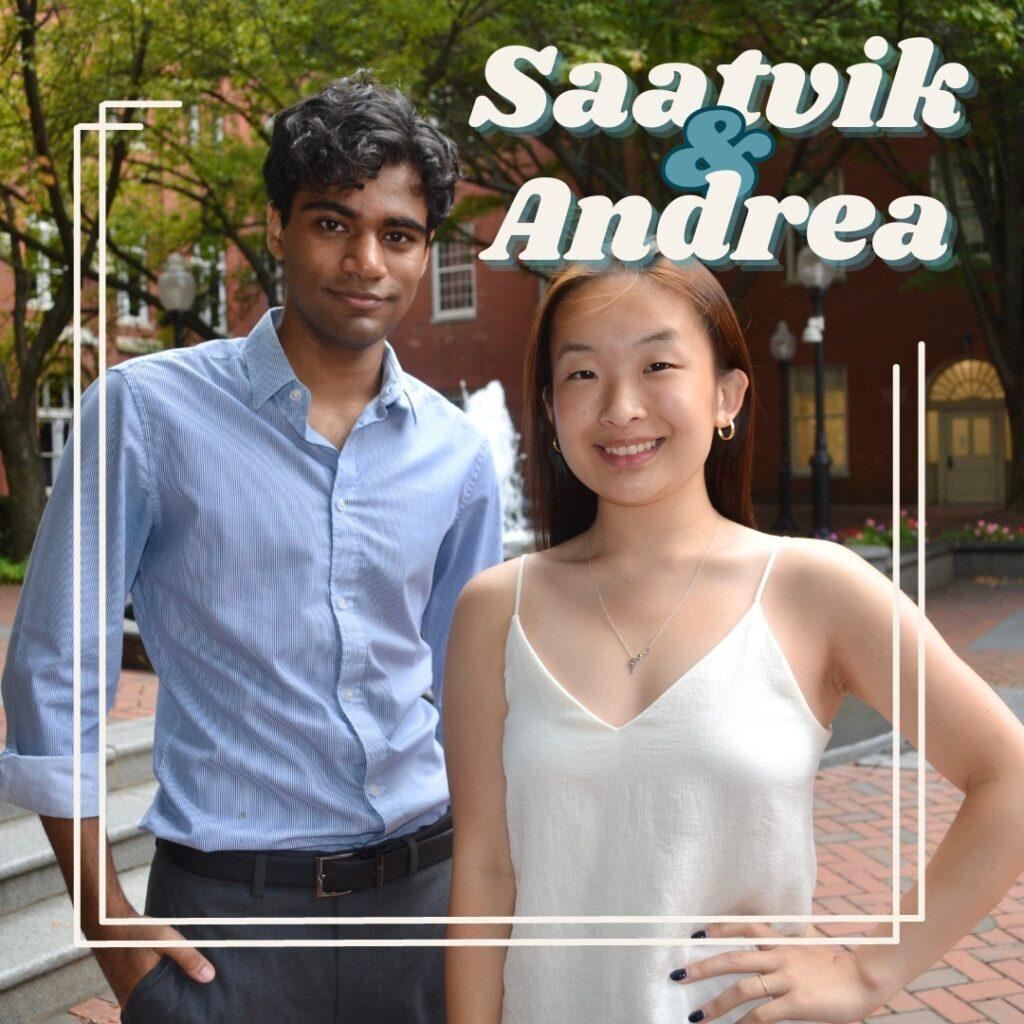Saatvik Sunkavalli (SFS ’25) and Andrea Li (SFS ’26), who are running for Georgetown University Student Association (GUSA) president and vice president, said they plan to institutionally reform GUSA so it better connects with student organizations.
The Hoya sat down with Sunkavalli, who currently serves as a GUSA senator, and Li to discuss their campaign and plans if elected. Voting opens Oct. 5 and closes Oct. 7.
Why are you running for GUSA?
Sunkavalli: I served on the senate for two years, and I got very jaded in the first couple of months. I was like, “This is not effective. This is not good. This is not how I imagined our student government was run.” In the past couple of months, I’ve done more executive stuff, as in, I actively reached out to executive branches and executive projects, and I found there are actual things that GUSA can do. There are actual connections that GUSA can make that I was unable to see explicitly in my time in the senate. Institutionally, it’s not a priority, and to make any change in the administration, you have to basically find it yourself. GUSA is not conducive to student leaders, to student organizations. It does not do its mission, which is to support the student body. It exists in its own bubble, which I think is a shame.
Li: I think there are a lot of challenges that students face on this campus that may not necessarily be noticed, unless it’s something that either just consistently proves to be a hindrance or challenge to you, or something that continues to really prevent you from thriving on campus. A lot of like, the soft infrastructure on campus is not realized by the administration and GUSA, especially the executive.
If elected, what are your top priorities?
Sunkavalli: So there’s a sexy answer, and there’s a less sexy answer. The sexy answer, I think, is basically making this campus more accessible to all students. That means reinstating full GUTS bus hours, that means extending dining hours, that also means like physical infrastructure, like getting around or getting access to campus is very difficult. The less sexy answer is institutional change in GUSA. The way it works right now is it’s effectively its own bubble, and if you want to do anything, a lot of the projects are funneled through the executive. There is no administrative integration into GUSA, and that means there’s not a lot of administrative integration into Georgetown student organizations on an umbrella level. My goal for the next year is basically to get more face time or to get more administrators to come to like student things.

How do you believe you’ll be able to accomplish your goals for the term and how are you going to follow through on your campaign promises?
Sunkavalli: When campaigning, it’s very easy to make lofty promises and add people to your campaign staff because they bring in a certain group of voters. The first thing that I think is important is to be cognizant of what you’re actually promising. We’ve seen in the past that the administration is very difficult to work with. Obviously, you should be hopeful, but it’s important to be realistic. When we’re thinking about what GUSA’s role in the student body should be, making lofty promises and political appointments then failing to deliver on actual actionables makes GUSA seem like a less trustworthy organization. We want to make promises that we can actually deliver on and get people in our cabinet that are part of the communities that can make a difference. When we’re actually in office, and talking about how you deliver on action for delivering on promises, making sure that people have explicit goals, making sure that there is a workflow and that you do meet with your cabinet members. And then the final thing, GUSA only has so many resources and so many people. Making sure that you’re actually integrated into the campus community, making sure that you’re talking with campus organizations and campus leaders that care about the causes that you are pushing for is very important, especially given the fact that we only have four years here, making sure that projects have a legacy and will be carried on after, even after specific student leaders graduate.
How will you keep voters engaged with GUSA throughout the year if you win the election?
Sunkavalli: The way we currently do it is we have a centralized GUSA newsletter. And the idea that people are actually going to pay attention — it’s great. I believe that we should still have it. I believe that it should be kept up. I believe it should be accurate. I think it should look good, but the idea that people on this campus are actually looking at the GUSA newsletter is naive. I want GUSA to serve more of a supportive role to projects that are happening on this campus. When we’re talking about marketing and engagement, GUSA should not be the headline. It should be more, I believe more project-based. We should be pushing towards a marketing strategy that is more project-based, less centralized on GUSA.
Do you support or not support ending legacy admissions?
Sunkavalli and Li: Yes.
Do you support or not support changing the name of the SFS after Madeleine Albright?
Sunkavalli and Li: No.
Give us your two-sentence elevator pitch as to why students should vote for you.
Sunkavalli: Because we have a broad range of experiences, or I would say broader range of experiences than the other tickets, in terms of what GUSA does, how we have served in GUSA and communities on this campus and because we have tangible and realistic plans for how our administration is going to work.
Li: Because we’re putting together various lived experiences in order to both think about this campus and its students and also achieve the unified front. So it’s about landing somewhere in between creating unity, while really thinking about diversity, and approaching diversity.
Sunkavalli: The tagline for the campaign is common sense solutions with big impact for a more unified campus.





















